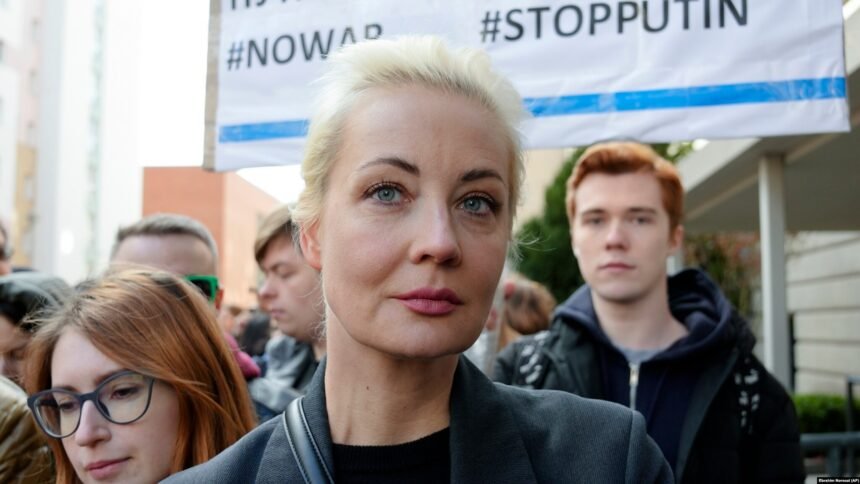Yulia Navalnaya, widow of Russian opposition leader Aleksei Navalny, stated on September 17, 2025, that independent laboratory tests conducted outside Russia indicate her husband was poisoned while imprisoned in a Russian Arctic penal colony, where he died under mysterious circumstances in February 2024.
In a video posted on social media, Navalnaya explained that supporters of Navalny smuggled biological samples from him out of Russia. Two independent laboratories in different countries analyzed the samples and concluded that Navalny was “killed; more specifically, poisoned.” She did not disclose the names of the laboratories or the precise findings but called for their results to be released publicly.
Navalnaya alleged that Arkady Gostev, head of the Federal Penitentiary Service (FSIN), had inspected the remote prison twice before Navalny’s transfer, suggesting the move was deliberate. She claimed prison conditions were harsh and isolated, allowing his opponents to finish their plan without interference.
According to Navalnaya, witness testimony from five prison staff members indicates that Navalny’s health rapidly declined in the weeks before his death. He reportedly experienced leg pain, chest and stomach pain, convulsions, and vomiting, with delayed or inadequate medical care. Navalny was eventually carried to the prison medical office only after losing consciousness, and a prison ambulance arrived over 40 minutes after his first complaints. Despite resuscitation efforts, Navalny was declared dead.
Navalnaya accused Vladimir Putin and Russian security services of orchestrating the poisoning, stating: “I state that Vladimir Putin is guilty of murdering my husband, Aleksei Navalny. I accuse the Russian security services of developing prohibited chemical and biological weapons.” She urged the laboratories to publish their findings and called for accountability.
While Western media, including The Wall Street Journal and AP, report that US intelligence agencies have not found evidence Putin ordered Navalny’s killing, Navalnaya’s claims have drawn renewed international attention. Navalny’s death remains a symbolic case of political persecution in Russia, following his 2020 poisoning with a military-grade nerve agent, which he attributed to Putin and the Federal Security Service (FSB).







